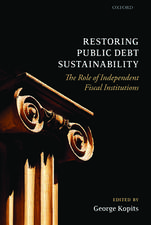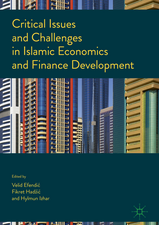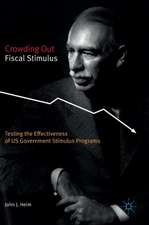The Euro and International Financial Stability: Financial and Monetary Policy Studies, cartea 37
Autor Efthymios G. Tsionasen Limba Engleză Hardback – 13 noi 2013
| Toate formatele și edițiile | Preț | Express |
|---|---|---|
| Paperback (1) | 641.53 lei 43-57 zile | |
| Springer International Publishing – 27 aug 2016 | 641.53 lei 43-57 zile | |
| Hardback (1) | 647.92 lei 43-57 zile | |
| Springer International Publishing – 13 noi 2013 | 647.92 lei 43-57 zile |
Din seria Financial and Monetary Policy Studies
-
 Preț: 544.10 lei
Preț: 544.10 lei - 15%
 Preț: 644.49 lei
Preț: 644.49 lei -
 Preț: 391.40 lei
Preț: 391.40 lei - 18%
 Preț: 954.45 lei
Preț: 954.45 lei - 18%
 Preț: 949.42 lei
Preț: 949.42 lei -
 Preț: 395.47 lei
Preț: 395.47 lei -
 Preț: 391.40 lei
Preț: 391.40 lei -
 Preț: 386.00 lei
Preț: 386.00 lei -
 Preț: 394.87 lei
Preț: 394.87 lei - 15%
 Preț: 640.71 lei
Preț: 640.71 lei - 15%
 Preț: 639.25 lei
Preț: 639.25 lei - 15%
 Preț: 651.02 lei
Preț: 651.02 lei - 18%
 Preț: 946.10 lei
Preț: 946.10 lei - 18%
 Preț: 1394.03 lei
Preț: 1394.03 lei -
 Preț: 385.47 lei
Preț: 385.47 lei -
 Preț: 383.71 lei
Preț: 383.71 lei - 15%
 Preț: 643.84 lei
Preț: 643.84 lei - 18%
 Preț: 958.07 lei
Preț: 958.07 lei - 15%
 Preț: 649.54 lei
Preț: 649.54 lei - 18%
 Preț: 1233.69 lei
Preț: 1233.69 lei -
 Preț: 391.61 lei
Preț: 391.61 lei - 18%
 Preț: 939.42 lei
Preț: 939.42 lei - 15%
 Preț: 639.90 lei
Preț: 639.90 lei - 18%
 Preț: 955.88 lei
Preț: 955.88 lei - 18%
 Preț: 954.77 lei
Preț: 954.77 lei - 18%
 Preț: 948.79 lei
Preț: 948.79 lei - 15%
 Preț: 634.00 lei
Preț: 634.00 lei - 15%
 Preț: 637.78 lei
Preț: 637.78 lei - 15%
 Preț: 640.88 lei
Preț: 640.88 lei
Preț: 647.92 lei
Preț vechi: 762.26 lei
-15% Nou
Puncte Express: 972
Preț estimativ în valută:
123.100€ • 128.97$ • 102.37£
123.100€ • 128.97$ • 102.37£
Carte tipărită la comandă
Livrare economică 14-28 aprilie
Preluare comenzi: 021 569.72.76
Specificații
ISBN-13: 9783319011707
ISBN-10: 3319011707
Pagini: 330
Ilustrații: IX, 308 p. 5 illus.
Dimensiuni: 155 x 235 x 25 mm
Greutate: 0.63 kg
Ediția:2014
Editura: Springer International Publishing
Colecția Springer
Seria Financial and Monetary Policy Studies
Locul publicării:Cham, Switzerland
ISBN-10: 3319011707
Pagini: 330
Ilustrații: IX, 308 p. 5 illus.
Dimensiuni: 155 x 235 x 25 mm
Greutate: 0.63 kg
Ediția:2014
Editura: Springer International Publishing
Colecția Springer
Seria Financial and Monetary Policy Studies
Locul publicării:Cham, Switzerland
Public țintă
ResearchCuprins
1 Introduction.- 2 What Went Wrong With the Euro?.- 3 Public Debt: Introductory Remarks.- 4 Was the Eurozone an Acceptable Currency Union?.- 5 Preconditions of a Monetary Union.- 6 What Was the Theory Behind the Formation of EMU?.- 7 Will the Eurozone Dissolve Into Its Constituents?.- 8 Can There Be an Efficient Dissolution of a Monetary Union?.- 9 Complete Fiscal Freedom in the Transition Period?.- 10 Understanding Crises and Recessions.- 11 Will Bailouts Lead to a Dissolution of the Euro?.- 12 On the Destabilizing Effects of Bailouts.- 13 On Sound Money and Credit Conditions.- 14 The Case of Free Banking.- 15 The Explosion of Public Debts.- 16 The Current Policies of the ECB.- 17 Some Remarks on the Greek Problem.- 18 Can There Be Stable Currencies After the Euro?.- 19 The Gold Standard and Free Banking.- 20 An Unexpected Supporter of the Gold Standard.- 21 Fundamental Problems of the Eurozone.- 22 Stability and the Eurozone.- 23 Conditions for Genuine Financial and Monetary Stability.- 24 International Financial Stability.- 25 On Monetary Policies.- 26 A New Fiscal Policy?.- 27 The "Price Puzzle".- 28 Re-Distributional Effects of Austerity Measures.- 29 Further Remarks on International Financial Stability.- 30 The Accommodation of Public Debt by Commercial Banks.- 31 The Consequence of the Market's Responses.- 32 Is Eurozone Effectively a Socialist Commonwealth?.- 33 Banking Efficiency.- 34 Banking and Regulation.- 35 Policy and Institutional Change in Southern Europe.- 36 Was the Euro a Bad or a Good Idea?.- 37 The Role of the Rate of Profit.- 38 International Industrial Structure.- 39 Capital Structure and Financial Stability.- 40 International Empirical Evidence on the ABC's of Recessions.
Notă biografică
Efthymios (Mike) Tsionas is Professor of Economics at the Athens University of Economics and Business. He obtained his Ph.D. from the University of Minnesota (1994) and served as alternate member of the Economic and Financial Committee of the European Union (1997-2000). He has more than 100 academic publications in such journals as Review of Economic Studies, Journal of the American Statistical Association, Journal of Econometrics, Journal of Applied Econometrics, Econometrics Journal, Journal of Development Economics, Oxford Bulletin of Economic and Statistics, Advances in Econometrics etc.
Textul de pe ultima copertă
As a result of the financial crisis, the weaknesses of the Eurozone, including the public debt crisis, materialized in severe depressions in certain of its country members. In this monograph, the author analyzes structural weaknesses of the Eurozone and argues that they can be traced to (i) institutional differences, (ii) differences in the economic structures, (iii) the fundamental inability of European Bureaucracy to deal with crises, and (iv) the extreme rigidity of markets which prevents a general equilibrium in product and credit markets. He concludes that whether the Eurozone is sustainable, depends on future monetary and credit policies, and discusses the implications of reforming it in the best interest of the international banking and financial system. The recent policies of the ECB of “cheap” credit expansion are examined in detail. The approach of the work is along the lines of von Mises’ and Hayek’s Austrian tradition; additionally, substantive international empirical evidence supporting this Austrian approach is presented.
Caracteristici
Analysis of international financial stability in the context of Austrian economics Examines the future of the Euro and the European Union Introduction to the Austrian economists’ way of thinking (Hayek and von Mises) Includes supplementary material: sn.pub/extras















